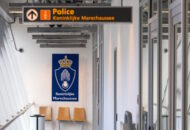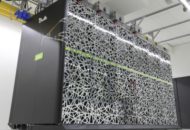The proposed merger of Hewlett-Packard and Compaq has not yet happened, and if some influential people have their way it won’t! The merger is in fact more of a take-over of Compaq by H-P, but both companies are so big that it will never be easy to impose one companies culture on the other.
This is going to be a massive task because H-P has a solid "Texas" background, while Compaq is a product of the whiz-kid generation spawned in California, with a "Silicon Valley" business outlook. Both may be suffering from some relatively poor results of late, but it would be silly to ignore the fact that both have a huge turnover. This is only achieved with aggressive and competitive sales forces and it will be a mammoth task to coordinate them to serve a single company.
There is a lot of overlap in products which will help with reorganisation to some extent but create problems in manufacturing. Compaq are of course a leading light in the PC market, but H-P has a significant presence as well. These could be easier merged because they have a similar market, rooted in the corporate world. H-P is however a major force in supplying robust, large scale corporate systems, particularly in engineering sectors. Compaq also has a presence but this is very new compared to H-P and has been achieved by buying first Tandem and then Digital. Of course there has been a massive advance in the capacity of Intel-based servers and Compaq has not been slow in trying to move upmarket into the departmental server market as the desktop PC market begins to dry up. But this is in sharp contrast to the ordered evolution of H-P as a supplier of medium as well as large scale servers. Thus while it won’t be that difficult to merge product development, there will be huge problems to resolve with pricing and sales strategies.
H-P has long been a supporter of Unix. Compaq has been very liberal in the choice of operating systems, obviously with a background in Windows, but they have a whole range of other systems in their portfolio, including multiple versions of Unix, i.e Ultrix, Tru64 and Unixware, not to mention Himalaya, VMS and other remnants from Tandem and DEC. Obviously Unix will continue to be the mainstream of the combined company, but how this can be rationalised it is difficult to see. There is no reason why the new company shouldn’t continue to support the Microsoft operating systems in the same way that they have done in the past and as IBM do so successfully. But Windows can no longer be a mainstay, because it makes it difficult to differentiate from other hardware suppliers. In contrast IBM exploit Windows to sell hardware and other IBM software, support and services. Both H-P and Compaq also have major service offerings, but these too will need coordinating (and that means problems with customer loyalty) and they don’t have IBM’s software portfolio. This then is where Open Source Software can become a major force. Since software is not a major percentage of their income, then the opportunity to rationalise the combined product line around Linux, Apache, etc., at the same time exploiting the significant Unix and integration skills, is probably the best thing they have going, making them the leader in OSS systems.
The problems nevertheless loom large. The surviving H-P founder, Walter Hewlett is dead set against the merger and is actively canvassing stockholders to veto it. He doesn’t like the thought of betting H-P’s future on merging with a company that has 65% of its revenue in low-end commodity products, when that market is failing. He has some strong arguments, the strongest being that no large scale merger has ever succeeded in the IT industry! The most obvious failures involve Compaq. Since the take-over of Digital, which cost a staggering $10 billion, or just short of it, Compaq’s stock has fallen to 20% of its earlier value, so claim experts supporting Hewlett. The Compaq/Tandem merger doesn’t appear to have achieved anything either and other problem examples being quoted are AT&T/NCR and Burroughs/Sperry mergers. There are plenty of others. There are of course a lot of other economic reasons for loss of stock value than the mergers, but it does seem that the problems of merging cost far more than the potential increase in business and reduced operational costs. It is clear that the merger is not going to get Walters support!
Martin Healey, pioneer development Intel-based computers en c/s-architecture. Director of a number of IT specialist companies and an Emeritus Professor of the University of Wales.





